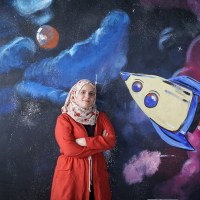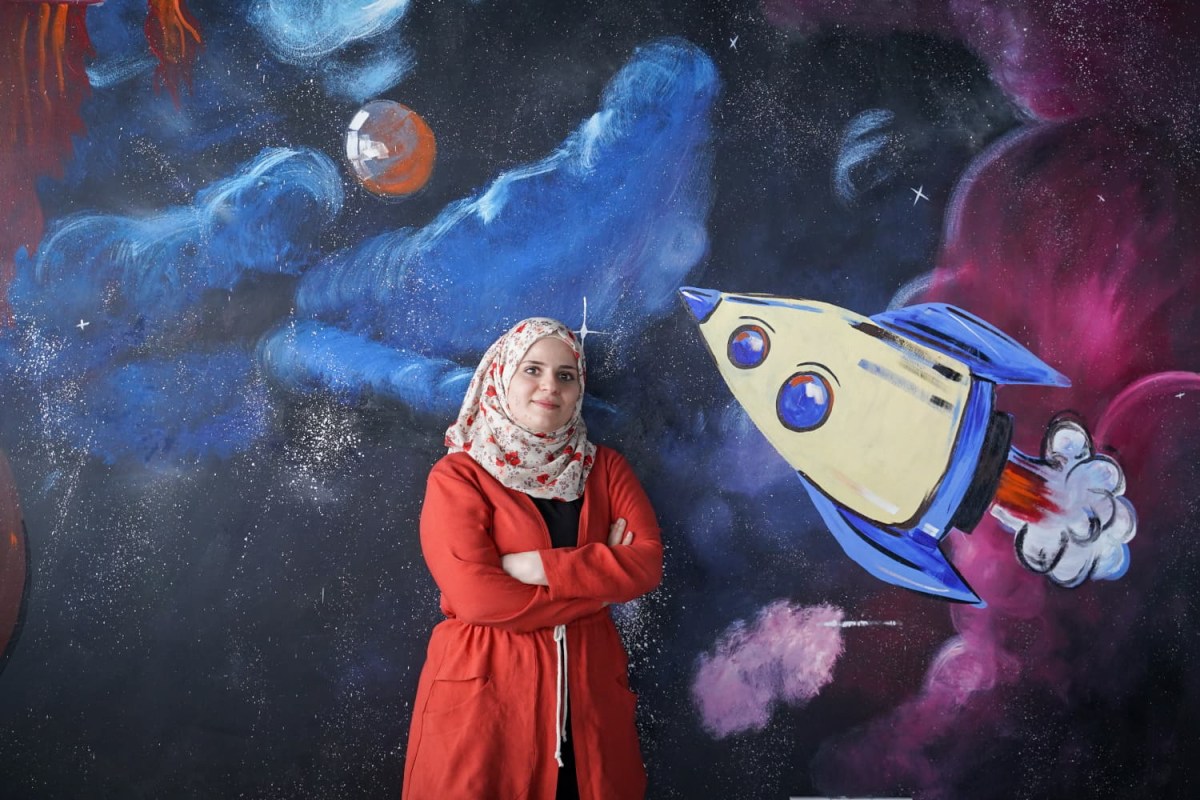Rand recalls her younger self saying, “I will never work in finance. I hate dealing with money.” Today, Rand is the Finance and Administrative Coordinator at a tech hub in Mosul, Iraq, that focuses on developing entrepreneurship, innovation, and tech-based jobs. Her goal is to earn a Master of Finance. How did Rand go from being resolutely anti-finance to building a career in it?
Her origin story starts with our tech hub in Mosul. Through a series of tech hubs locations in Iraq, Mexico, and a virtual cohort, our mission is to provide jobs through technology by teaching the technical and interpersonal skills necessary to flourish in today’s job market. But how did a tech-based program translate to finance?
“[Our program] encouraged me to be in finance.” Rand came to our tech hub with an impressive technological background. She had majored in mechatronics (a combination of mechanical engineering, electrical engineering, computer engineering, control engineering, and systems design) at Mosul University and had learned English as a teen by watching TV and movies. As a result, she was placed in an advanced IT class, where she encountered her first accounting class. When we asked her if it was hard, she said, “Accounting was new, but the explanations were good. The instructors were friendly. The environment was cool.” Before she took the class, she didn’t think she’d be able to be an accountant, but with the encouragement she received, she was able to finish the course successfully. Her first post-university job was in finance. Now, she gives courses on finance for startups, including bookkeeping, how to make financial statements, and how to track cash. Remarkable for someone who a short time ago hated “dealing with money.”

In fact, before she attended our tech hub, she couldn’t find a job after graduation because what she had learned while studying her major (AI, robotics, Python) wasn’t in demand in the local job market. The problem of not having the qualifications for which employers in Mosul are looking plagues some of her friends today. Rand points out that art colleges do not “deal with PCs.” She reports that students who graduate with art degrees do not know how to send an email or use Google apps and Microsoft Suite—all of which are taught in our basic IT class. She said she tells her friends to come to our tech hub to learn the tech skills they need.
“Every day, I learned a new thing. Impressive curriculum and impressive way of teaching it.” She said giving presentations was problematic but the instructors were encouraging. When we checked in with her a few days after we first spoke, she was giving a presentation on 3D printers and laser cutting machinery to girls “to help them and encourage them to make things and mixing between technology and handmade.”
Although Rand benefitted from the weekly workshops covering CV writing, interview skills (she, too, hates that “Tell me about your strengths and weaknesses” interview question), and English proficiency, she thinks the superpower of our program was developing her soft skills. “You gave (me) encouragement to be a leader.” An instructor gave her his biggest vote of confidence when he recommended her to be a team leader at a camp for a local NGO. In her present job, she often hears, “Mosul Space (her current employer) is lucky to have a person like you.” She credits our program for this success. Not only did our instructors improve her confidence, they pushed her to be a leader. Although she is no longer a tech hub classroom participant, our community of instructors continues to play a major role in her life. “We are still connected to each other. I still go to them for advice.”
When we belong to each other, the relationships we build outlast the situations that begin them.
Rand recounted when ISIS destroyed Mosul, her university was burned. The roads were torn up and the school buildings were unusable. There were no labs or places to do homework. Only 20% of Mosul has been rebuilt. Your investment in young Iraqis, in their tech, job, and soft skills training, helps young people like Rand remake their city, their community, and their lives free from violence.


